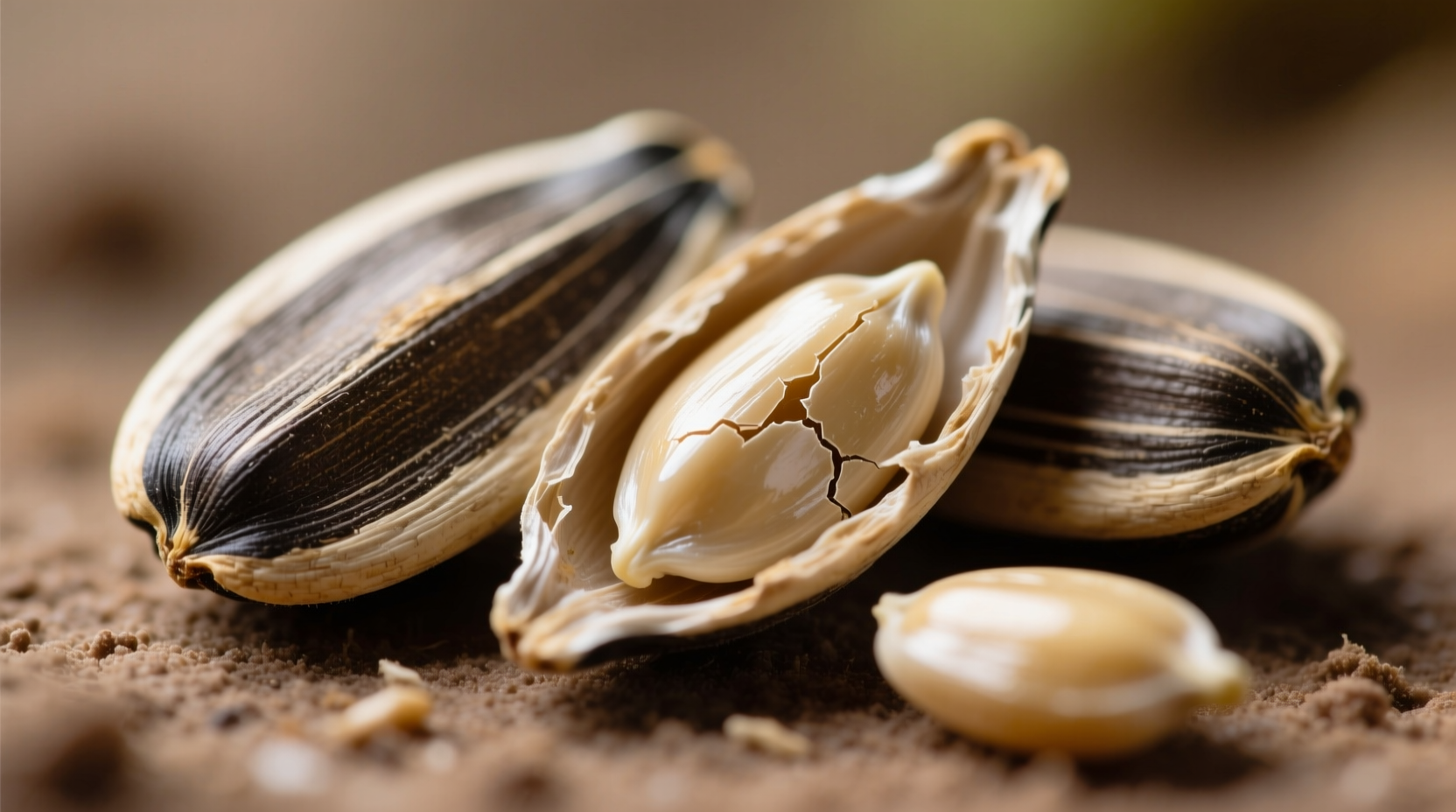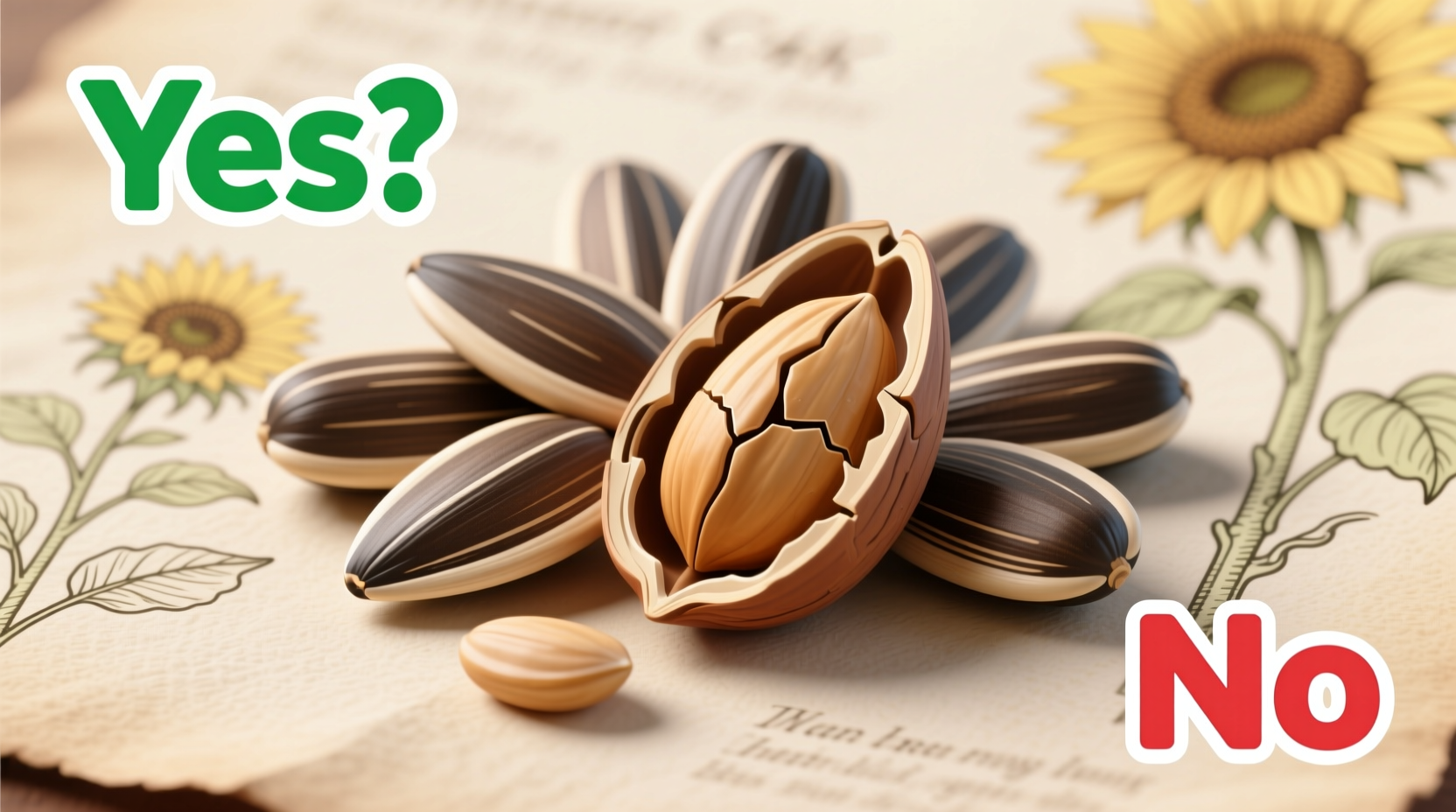Direct answer: No, it's generally not okay to eat sunflower seed shells. The hard, fibrous hulls are difficult to digest and can cause gastrointestinal issues like blockages or irritation. While not toxic, sunflower seed shells provide no nutritional benefit and should be discarded after cracking the seeds.
Have you ever wondered whether those crunchy sunflower seed shells are safe to swallow? You're not alone. Millions of snackers face this dilemma daily, especially when enjoying roasted seeds at baseball games or while watching TV. In this guide, you'll discover exactly why sunflower seed shells shouldn't be eaten, the potential health risks involved, and the proper technique for enjoying these popular snacks safely.
The Digestive Reality of Sunflower Seed Shells
Sunflower seeds come encased in hard, fibrous shells designed by nature to protect the kernel inside. These shells, also called hulls, consist primarily of cellulose - a complex carbohydrate that humans lack the enzymes to break down effectively. Unlike birds with specialized digestive systems, our gastrointestinal tracts aren't equipped to process these tough outer layers.
When you accidentally swallow sunflower seed shells, they travel through your digestive system largely intact. While small amounts might pass without incident, regular consumption or larger quantities can lead to uncomfortable and potentially serious complications.
| Characteristic | Sunflower Seed Shells | Edible Sunflower Kernels |
|---|---|---|
| Digestibility | Low (passes through undigested) | High (easily digested) |
| Nutritional Value | Negligible | High in healthy fats, protein, vitamins |
| Texture | Hard, sharp edges | Soft, smooth |
| Health Impact | Potential digestive issues | Nutritional benefits |
Documented Health Concerns from Shell Consumption
Medical professionals have documented several potential issues associated with eating sunflower seed shells:
- Intestinal blockages: The sharp, indigestible shells can accumulate and cause obstructions, particularly in children or individuals with pre-existing digestive conditions
- Esophageal irritation: Rough shell fragments can scratch the esophagus during swallowing
- Appendicitis risk: Some case studies have linked excessive shell consumption to appendicitis due to irritation and blockage
- Dental damage: The hard shells can potentially crack teeth or damage dental work
A 2022 review published in the Journal of Gastroenterology and Hepatology documented multiple cases where patients required medical intervention after consuming significant quantities of sunflower seed shells over time. The researchers noted that "the fibrous nature of sunflower seed hulls poses a unique challenge to the human digestive system, which evolved to process softer plant materials."

Proper Technique for Enjoying Sunflower Seeds
Learning the correct method for eating sunflower seeds transforms your snacking experience from potentially hazardous to completely safe. Follow these professional tips:
- Place a single seed between your molars
- Gently crack the shell using controlled pressure
- Use your tongue to separate the kernel from the shell
- Spit the shell into a designated container (never swallow)
- Enjoy the nutritious kernel
Many experienced sunflower seed eaters develop a rhythm that allows them to efficiently separate shells from kernels. Professional snackers often recommend using a small bowl specifically for discarded shells to avoid accidental consumption.
When Small Amounts Might Be Tolerated (Context Boundaries)
While the general rule is to avoid eating sunflower seed shells entirely, certain contexts make accidental consumption of small amounts less concerning:
- Occasional small fragments: Tiny shell pieces that accidentally mix with kernels during commercial processing typically pass without issue
- Processed seed products: Some roasted seed products have partially softened shells through cooking processes, reducing but not eliminating risks
- Individual digestive resilience: People with robust digestive systems might tolerate minimal shell consumption without symptoms
However, these exceptions don't make shell consumption advisable. The USDA's Food Safety and Inspection Service notes that "while isolated incidents of swallowing small shell fragments rarely cause immediate harm, consistent consumption creates cumulative risk that outweighs any perceived convenience."
Healthy Alternatives for Fiber Seekers
If you're considering eating sunflower seed shells for their fiber content, there are far safer and more effective alternatives:
- Choose hulled sunflower kernels (often labeled "shelled" or "kernels")
- Incorporate other high-fiber foods like fruits, vegetables, and whole grains
- Consider sunflower seed butter as a nutritious alternative
- Add sunflower kernels to salads, yogurt, or oatmeal for extra crunch
Hulled sunflower seeds retain all the nutritional benefits - including vitamin E, magnesium, and healthy fats - without the digestive risks. According to the Academy of Nutrition and Dietetics, "one ounce of hulled sunflower seeds provides 2 grams of fiber, 6 grams of protein, and essential nutrients, making them a nutritionally dense snack when properly prepared."
Final Recommendations for Safe Consumption
Based on current medical understanding and food safety guidelines, here's what you need to know about sunflower seed shells:
- Never intentionally swallow sunflower seed shells
- Develop proper cracking and spitting technique to avoid accidental consumption
- Choose pre-hulled seeds if you struggle with shell removal
- Keep children supervised when eating in-shell sunflower seeds
- Seek medical attention if you experience pain after swallowing multiple shells
Enjoying sunflower seeds safely means respecting their natural design. The shells serve as protective packaging that should be discarded, not consumed. By following these guidelines, you can continue enjoying this nutritious snack without putting your digestive health at risk.











 浙公网安备
33010002000092号
浙公网安备
33010002000092号 浙B2-20120091-4
浙B2-20120091-4